How to Get an FHA Loan with a Chapter 13 Bankruptcy in Texas: A 2025 Guide
Filing for Chapter 13 bankruptcy can significantly impact your financial future, but it doesn’t necessarily close the door on homeownership. In fact, obtaining an FHA loan after a Chapter 13 bankruptcy is possible, even in Texas, provided you meet the necessary qualifications and guidelines. With the right strategy and a clear understanding of the process, you can secure a home loan that will help you move toward financial recovery and homeownership.
In this guide, we’ll walk you through the entire process of qualifying for an FHA loan after Chapter 13 bankruptcy in Texas, including eligibility requirements, key steps to take, common mistakes to avoid, and how to improve your chances of approval.
What is Chapter 13 Bankruptcy?
Chapter 13 bankruptcy, often referred to as a “reorganization” bankruptcy, allows individuals to keep their assets while working out a plan to repay their debts over 3 to 5 years. The primary benefit of Chapter 13 is that it helps individuals avoid foreclosure, car repossession, and wage garnishment while providing a clear path to debt relief.
However, while Chapter 13 bankruptcy offers relief from creditors, it can also have a significant impact on your credit score, which can make it more difficult to qualify for a mortgage. Fortunately, the Federal Housing Administration (FHA) offers home loans that can help individuals who have undergone bankruptcy, including those who have filed for Chapter 13.
Can You Get an FHA Loan After Chapter 13 Bankruptcy in Texas?
The good news is that, yes, you can qualify for an FHA loan after filing for Chapter 13 bankruptcy in Texas. The Federal Housing Administration is often more flexible with applicants who have a bankruptcy on their record compared to traditional lenders. However, there are certain requirements that must be met for your FHA loan application to be approved.
1. FHA Loan Waiting Periods
FHA loans have specific waiting periods after filing for bankruptcy, depending on whether your Chapter 13 case has been discharged or is still ongoing.
•Chapter 13 Discharge: If your Chapter 13 bankruptcy has been discharged, meaning the court has completed the case and you have paid off the agreed-upon portion of your debts, you can typically apply for an FHA loan right away. There is no mandatory waiting period once the bankruptcy is discharged, though you must still demonstrate that you have re-established your credit.
•Chapter 13 In Progress: If you are still in the middle of your Chapter 13 repayment plan, you may still be eligible for an FHA loan, but you will generally need to wait at least 1 year after filing before applying. During this time, you must have made all required payments to your bankruptcy trustee, and your payment history must be clean and up to date. Additionally, you will need written approval from your bankruptcy trustee.
2. Credit Score Requirements
One of the most important factors in qualifying for an FHA loan is your credit score. While FHA guidelines are more lenient than those of conventional loans, a solid credit history is still necessary.
•For a standard 3.5% down payment, you will need a minimum FICO score of 580. If your score is between 500 and 579, you may still qualify for an FHA loan, but you will likely be required to make a larger down payment of at least 10%.
•It’s important to note that lenders in Texas may have slightly stricter credit score requirements based on their individual criteria, so it’s always a good idea to check with specific FHA-approved lenders.
3. Stable Income and Financial Stability
FHA lenders will also want to see that you have a stable and sufficient income to repay the mortgage. This typically means providing documentation such as pay stubs, tax returns, and bank statements. If you’re self-employed, additional documentation such as business financials may be required.
Lenders will also assess your debt-to-income (DTI) ratio, which compares your monthly debt payments to your monthly income. The FHA generally allows a DTI ratio of up to 43%, though some lenders may be willing to go higher with strong compensating factors.
4. Proof of On-Time Payments
One of the most critical factors for qualifying for an FHA loan after a Chapter 13 bankruptcy is demonstrating that you’ve been making your required bankruptcy payments on time. If your bankruptcy case is still open, you’ll need to show proof that you’ve been making the agreed-upon payments to your trustee without any late payments. If your bankruptcy is discharged, you’ll need to show that you’ve maintained a clean payment history in the years following the discharge.
Be prepared to provide documentation, including payment history reports from the trustee or a court-certified letter confirming that you’ve been adhering to the terms of your repayment plan.
Key Steps to Take When Applying for an FHA Loan After Chapter 13 Bankruptcy in Texas
If you’re interested in applying for an FHA loan after Chapter 13 bankruptcy in Texas, here are the key steps to follow:
1. Ensure Compliance with Chapter 13 Payment Plan
If you are still in the process of Chapter 13 bankruptcy, make sure that you have made all required payments on time and in full. This is a crucial step, as lenders will require you to provide documentation of your on-time payment history to proceed with your FHA loan application.
If you’re still under the repayment plan, you will need to get approval from your bankruptcy trustee, who will verify that you’ve kept up with your payments and are in good standing with the court.
2. Wait for the Necessary Time Period
Depending on whether your Chapter 13 bankruptcy has been discharged or is still ongoing, make sure you’ve met the FHA’s required waiting periods. For an open Chapter 13 case, you must wait at least one year before applying for an FHA loan. If your bankruptcy has been discharged, you may be able to apply immediately, but your credit will still be scrutinized.
3. Rebuild Your Credit
After a Chapter 13 bankruptcy, your credit will likely take a hit. While FHA loans are more forgiving of previous bankruptcies, it’s still important to focus on rebuilding your credit score. Start by paying off any existing debt, using credit responsibly, and keeping credit card balances low.
Some practical steps to rebuild your credit include:
•Paying bills on time.
•Applying for a secured credit card or becoming an authorized user on a family member’s credit card.
•Regularly reviewing your credit report for inaccuracies or fraud.
4. Save for a Down Payment
The FHA typically allows a down payment as low as 3.5%. However, if your credit score is below 580, you may need to put down at least 10%. Start saving early to cover this cost, and also be prepared for additional closing costs that may arise during the home-buying process.
5. Get Pre-Approved with an FHA-Approved Lender
Once you’ve met the necessary requirements, the next step is to find an FHA-approved lender in Texas who can help you with the loan process. Look for lenders who are familiar with working with borrowers who have a bankruptcy history, as they will better understand the process and can guide you through the necessary steps.
Make sure the lender you choose is familiar with FHA guidelines and has experience working with individuals in bankruptcy recovery.
6. Provide Documentation
Be ready to provide the following documentation when applying for an FHA loan:
•Proof of bankruptcy discharge (if applicable).
•Documentation of on-time bankruptcy payments.
•Pay stubs, tax returns, and bank statements.
•A copy of your credit report.
Having all of your documentation in order will help streamline the approval process and ensure that there are no delays.
Common Mistakes to Avoid When Applying for an FHA Loan After Chapter 13 Bankruptcy
When applying for an FHA loan after bankruptcy, it’s important to avoid these common mistakes:
1. Missing Payments During the Bankruptcy Process
One of the biggest red flags for lenders is missing payments during the Chapter 13 repayment period. Even one missed payment can delay your ability to secure an FHA loan. Stay diligent about making timely payments.
2. Not Getting Trustee Approval
If you’re still in Chapter 13 bankruptcy, failing to get approval from your trustee can result in delays or even denial of your loan application. Always work closely with your trustee to ensure they are aware of your plans to apply for a mortgage.
3. Not Rebuilding Your Credit
If you don’t make an effort to rebuild your credit after bankruptcy, you may struggle to meet the minimum FHA credit score requirements. Start rebuilding your credit as soon as possible to improve your chances of loan approval.
4. Overestimating Your Buying Power
It’s tempting to apply for a larger mortgage, but it’s important to be realistic about what you can afford. Lenders will assess your debt-to-income ratio, and overextending yourself financially can hurt your application.
Conclusion
Qualifying for an FHA loan after Chapter 13 bankruptcy in Texas is entirely possible if you meet the FHA’s requirements, including waiting periods, credit score thresholds, and proof of on-time payments. By staying on top of your bankruptcy payments, rebuilding your credit, and working with an experienced FHA-approved lender, you can successfully navigate the process and achieve your homeownership goals.
To get started, you can explore FHA-approved lenders in Texas through resources like the HUD Lender Search and take the necessary steps to ensure your financial future is on the right track.
By following these steps and avoiding common pitfalls,

